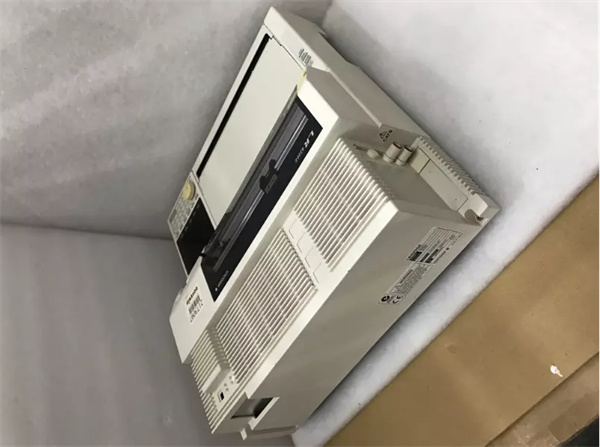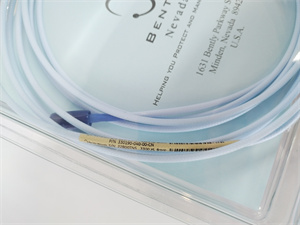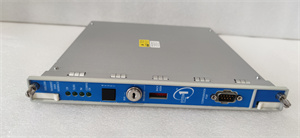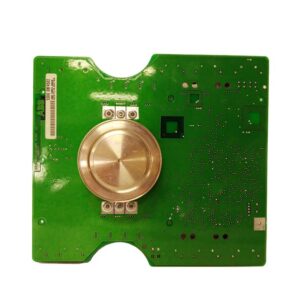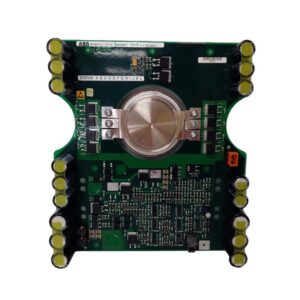Description
YOKOGAWA LR 4220E 2-Pen Strip Chart Recorder
1. Product Description
The YOKOGAWA LR 4220E is a discontinued 2-pen strip chart recorder designed for industrial data logging applications. Part of Yokogawa’s LR series, the LR 4220E records analog signals (voltage, current, temperature, etc.) on a 20-meter paper chart, offering real-time visualization of process data. With dual-channel recording, configurable chart speeds (10–600 mm/min), and support for DC voltage, thermocouple, and RTD inputs, it caters to diverse industries such as manufacturing, energy, and research. The recorder features alarm functions for threshold violations and a compact design (144 mm × 144 mm × 280 mm) for panel mounting. While now discontinued, it remains a reliable solution for legacy systems requiring analog data logging.
2. Product Parameters
| Parameter | Specification |
|---|---|
| Channels | 2 (simultaneous recording) |
| Input Types | DC voltage (0–500 mV), thermocouples (J, K, T), RTD (Pt100) |
| Chart Speed | 10–600 mm/min (adjustable) |
| Paper Size | 20 m roll (standard width: 100 mm) |
| Alarm Function | Audible/visual alerts for out-of-range values |
| Power Supply | 100–240V AC (50/60Hz) |
| Dimensions | 144 mm (W) × 144 mm (H) × 280 mm (D) |
| Weight | 8 kg |
| Environmental Rating | IP20 (indoor use) |
| Certifications | CE, UL (compliant with industrial standards) |
3. Advantages and Features
- Multi-Channel Flexibility: Simultaneous 2-channel recording for complex processes.
- Versatile Inputs: Supports thermocouples, RTDs, and DC voltage, ideal for mixed-signal environments.
- User-Friendly Operation: Adjustable chart speeds and modular design for easy paper replacement and calibration.
- Alarm System: Real-time alerts for critical parameter deviations.
- Legacy Compatibility: Suitable for retrofitting into older control systems without digital upgrades.
YOKOGAWA LR 4220E
4. Application Areas and Case Studies
- Manufacturing: Monitoring temperature and pressure in production lines.
- Energy: Logging data from power generators and HVAC systems.
- Research Labs: Recording experimental data in chemical or material testing.
Case Study: A water treatment plant used the LR 4220E to monitor pH and conductivity in wastewater tanks. Its dual-channel capability allowed side-by-side analysis, while alarm functions triggered immediate responses to outliers. The analog format simplified integration with legacy SCADA systems, ensuring continuous operation during a phased digital upgrade.
5. Competitive Comparison
Against legacy chart recorders, the LR 4220E offers:
- Dual-Channel Efficiency: Simultaneous recording (vs. single-channel alternatives).
- Wide Input Range: Support for thermocouples/RTDs (vs. limited voltage-only models).
- Compact Design: Space-saving dimensions (144 mm × 144 mm) for crowded control panels.
- Cost-Effective Legacy Support: Lower maintenance costs compared to retrofitting digital systems.
6. Selection Recommendations
- Legacy Systems: Choose the LR 4220E for analog data logging in older installations.
- Replacement Planning: Consider Yokogawa’s modern alternatives (e.g., MW100/MX100 digital recorders) for new projects.
- Input Requirements: Verify compatibility with thermocouple/RTD types (e.g., J/K/T for thermocouples).
- Space Constraints: Ensure panel space (144 mm × 144 mm) and ventilation for continuous operation.
7. Installation and Usage Notes
-
Wiring: Use shielded cables for thermocouple/RTD inputs to reduce noise.
-
Paper Replacement: Replace rolls every ~200 hours (at 600 mm/min); store paper in dry environments.
-
Calibration: Perform annual checks using Yokogawa’s calibration tools (e.g., Model 370013 software).
-
Discontinuation: Plan for eventual replacement (end-of-life support may be limited).

